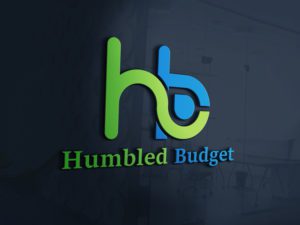Table of Contents
ToggleIntroduction
You’ve made it through another year. Let us take a look at how you can use your earned tax savings wisely.
Here are some of my favorite ways to save money on taxes and make sure you don’t overpay:
Best tax savings strategies
Tax season is fast approaching, so it’s time to start thinking about how to use smart tax strategies to save money.
There are several ways to save cash on taxes. Here are some tips for lowering your tax bill this year:
Medical deductions
Medical expenses are deductible, but there are some limitations. You can deduct medical expenses that exceed 10% of your Adjusted Gross Income (AGI). The threshold for self-employed people is 7.5%.
You can also claim medical expenses for your spouse and dependents under age 17. There’s no limit on what you can spend on any individual or dependent.
Any expense you pay during the year qualifies (including a copayment), so long as it is medically necessary and not cosmetic or experimental.
FSA options
Flexible Spending Accounts (FSAs) are a great way to save on taxes. An FSA gives you a space to set aside pre-tax dollars that can be used to pay for out-of-pocket medical expenses not covered by your health plans, such as prescriptions, dental work, vision care, and other health care expenses.
Because the money comes out of your paycheck before taxes are withheld and is used to pay your deductible and other out-of-pocket costs like copays, you don’t have to worry about paying additional taxes.
The IRS doesn’t require you to designate specific purposes for the money in your FSA account; so long as it’s being used for medical purposes, you can use it however works best for you.

Lifetime Learning credit
The full-time Learning credit is available to those who pay qualified education expenses. Qualified expenses include tuition and fees, books, supplies, equipment required for a specific course of study, and transportation costs.
If you owe money in taxes, you can use the Lifetime Learning credit to reduce your tax savings bill by 20% of up to $2,000 in qualifying expenses (or 10% if filing as head of household).
If you don’t owe enough taxes to offset all eligible expenses with this credit, say because your income is too low, it becomes a nonrefundable credit that reduces how much of your income will be taxed; it doesn’t give back any refunded tax savings money.
The full-time Learning Credit can be claimed by single parents or married couples with dependents on their returns (but only one parent needs to be eligible). It may be taken even if the student is not considered dependent on either parent.
Energy tax savings credits
There are many ways to save on your tax bill by using energy tax credits. Energy tax credits are available for installing solar panels, geothermal heating, air conditioning systems, wind turbines, and fuel cells.
Depending on your purchased equipment, you may be eligible for a tax credit worth 30% or more of the installation cost. This can reduce your overall tax savings bill by hundreds of dollars each year.
Homeowners can appeal property taxes.
If you’re a homeowner, there are ways to save on your property taxes. You have the power to contest your home’s assessed value and make it more affordable.
It’s also possible to reduce the cost of your homeowner’s association (HOA) fees by attending meetings, voicing concerns, and making suggestions about how money is spent.
If you don’t want to appeal the assessed value but still want to lower your property taxes, consider taking these steps:
Take a look at what improvements could be made that would increase the value of your home while minimizing expenses (such as switching from natural gas heating and cooling systems) then compare those costs with what they’d be if you bought a new home with those same features included in its price tag.
Consider selling if tax savings rates are expected to increase significantly during upcoming years and especially if there isn’t much room left for additional depreciation deductions due to recent renovations or updates being done around this period.
Moving to a state with a lower tax burden
Moving to a state with a lower tax burden can save you money on taxes. Examples of states with lower tax savings burdens include Florida, Nevada, and Texas.
To find out how much money you will save by moving from your current state to one of these three states, use this calculator from the Tax Foundation.
However, remember that some states have no sales tax savings but high income taxes. For example, Washington State has no sales tax but a 13% income tax savings rate in the highest bracket (over $10 million).
If you’re planning on moving there for its lower cost of living and cheaper homes yet want to pay off your mortgage quickly (which means buying a house), consider relocating elsewhere outside Seattle.

Owning property, having savings, and giving to charity can all help save you money on taxes
The mortgage interest deduction is a huge one for homeowners. If you itemize your deductions, you can deduct the interest on up to $750,000 of home loan debt ($375,000 if married, filing separately).
If your income is over $109,000 (married filing jointly), this deduction begins phasing out at 10% of the amount by which your AGI exceeds that figure; it’s completely phased out above a threshold of $134,949 (or $67,097 for singles).
As long as your home is used as a primary residence and it’s not rented out part-time like an Airbnb or vacation, homes do not qualify under this tax savings code section.
Tax Saving Strategies For high-income Earners
Before looking into the tax saving strategies for the high income earners, first let’s have a look at IRS’s definition of high income earners;
According to IRS, any person who earns more than 170,050$ per annum and he is single person or a married person filing separately, and any married person who earns more than 340,101$ and is filing jointly is regarded as a high income earner.
Here are some of the best tax saving strategies for the high income earners:
- Charitable contributions
- Chnage traditional IRA to Roth IRA
- Invest in Mutual Funds and Exchange traded funda
- Take a look at other deductions like medical care and Mortgage interest and try to increase them.
Conclusion
We’ve covered a lot of ground in this post however, there are still many other ways to save on your taxes.
One key takeaway is that the more you can reduce your taxable income, such as by contributing to retirement accounts or buying deductions and credits, the less you’ll pay in taxes yearly.
Don’t forget that while it may seem like an uphill battle, it pays off in the long run.
Whether you have a huge amount saved up or just trying to get started with a couple of hundred dollars each month, being mindful about how much money goes into paying for things like healthcare premiums, childcare costs, or property taxes will help keep those savings going strong.














